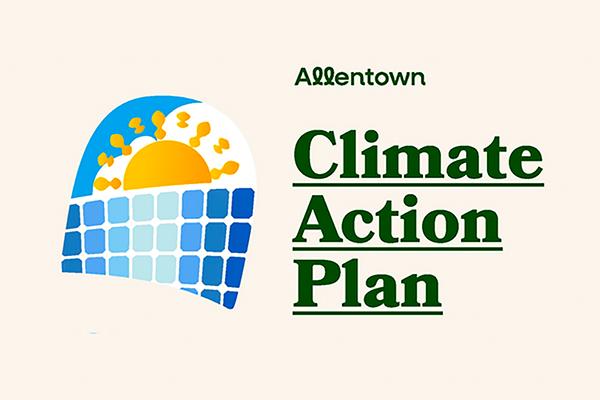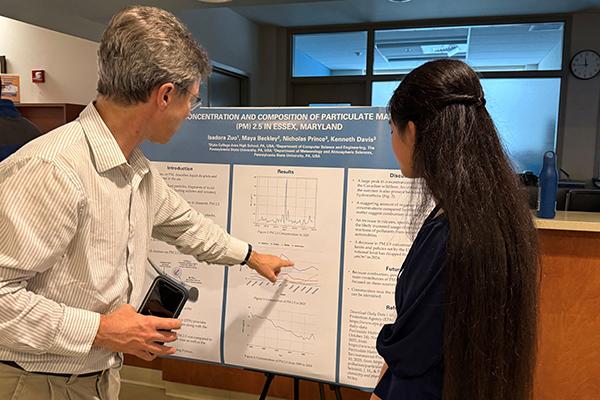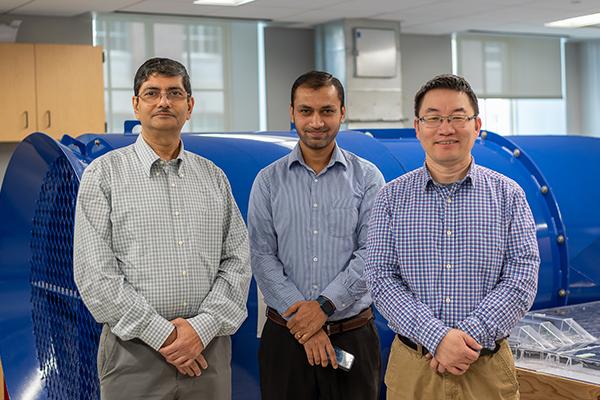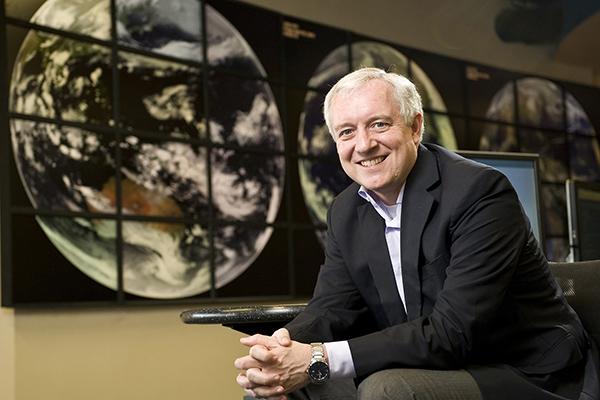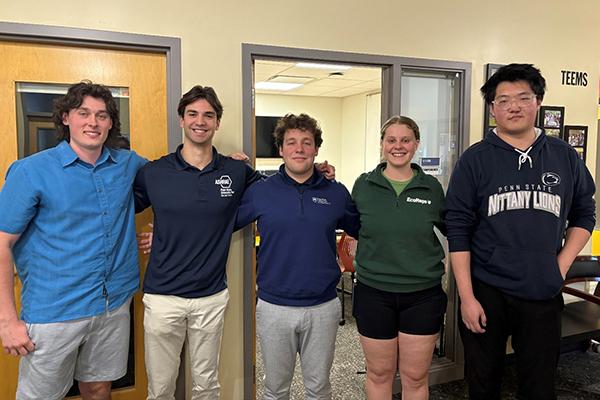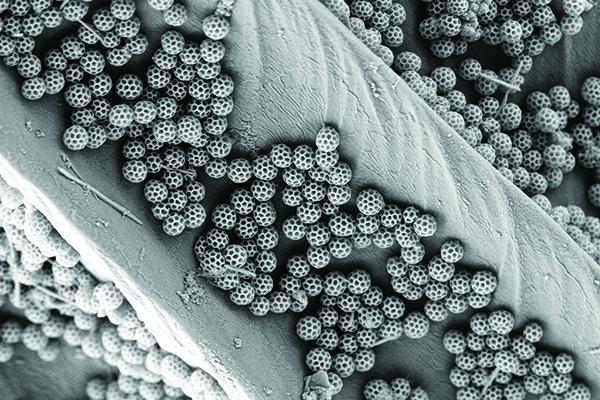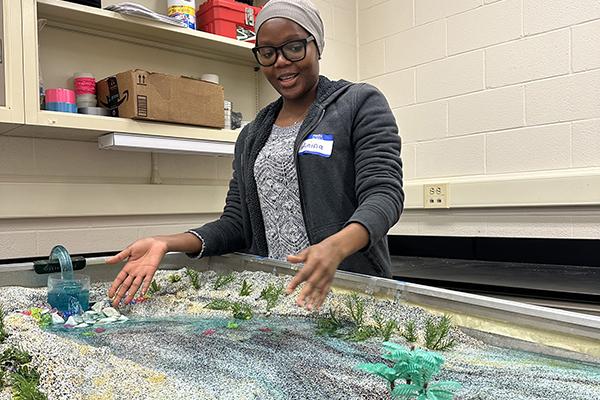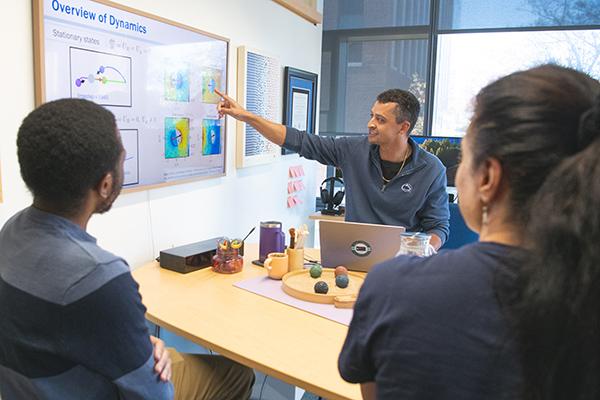Two Penn State students are playing an instrumental role in helping the city of Allentown, Pennsylvania, develop its first climate action plan.
Penn State’s chapter of EnvironMentors held its annual research symposium on April 26 at the Pasquerilla Spiritual Center at Penn State University Park. The EnvironMentors program partners high school students with faculty and undergraduate student mentors in science, technology, engineering and math (STEM) to plan and conduct environmental research projects. Students then present their results at the annual symposium.
Penn State will host the 20th North American Mine Ventilation Symposium (NAMVS) in collaboration with the Society of Mining, Metallurgy, and Exploration (SME) and the SME Underground Ventilation Committee (UVC) on June 21–26 in Pittsburgh.
David Titley, Penn State alum, retired U.S. Navy rear admiral and retired University professor, will give the commencement address for the spring 2025 baccalaureate degree commencement ceremony for the College of Earth and Mineral Sciences. The ceremony is scheduled for 1 p.m. on Saturday, May 10, in the Pegula Ice Arena on Penn State's University Park campus.
As part of our regular “We Are!” feature, we recognize 20 Penn Staters, including one from the College of Earth and Mineral Sciences, who have gone above and beyond what’s asked of them in their work at the University.
Students in Assistant Professor of Energy and Mineral Engineering Nelson Dzade’s "EGEE 437: Design of Solar Energy Conversion Systems" class worked with Greenwood Furnace State Park this spring semester as part of a Sustainable Communities Collaborative (SCC) project in partnership with Pennsylvania's Department of Conservation and Natural Resources' (DCNR) Think Outside Program.
The winners of the 17th annual Materials Visualization Competition (MVC), a scientific visual and artistic competition sponsored by the Department of Materials Science and Engineering and the Materials Research Institute at Penn State, have been announced. MVC celebrates the quality of research in materials at Penn State and promotes awareness of materials science through visualization.
For the second year in a row, fourth graders in the State College Area School District have been learning about the earth sciences with the help of geosciences experts in the Penn State College of Earth and Mineral Sciences (EMS).
Seeing the “huge juxtaposition” between streams flowing near her childhood home in Lancaster County impaired by pollution from intensive agriculture and the seemingly pristine creeks tumbling down the forested mountains around her family’s cabin in Mifflin County led Bridget Reheard to study how contaminants in waters affect aquatic organisms and aspirations for a career working to protect natural resources.
From microscopic robots that can carry and deliver drugs inside the human body to tiny particles that can detect and break down microplastics, an emerging field called active matter is looking toward the microscale to solve some of the world’s biggest problems.


